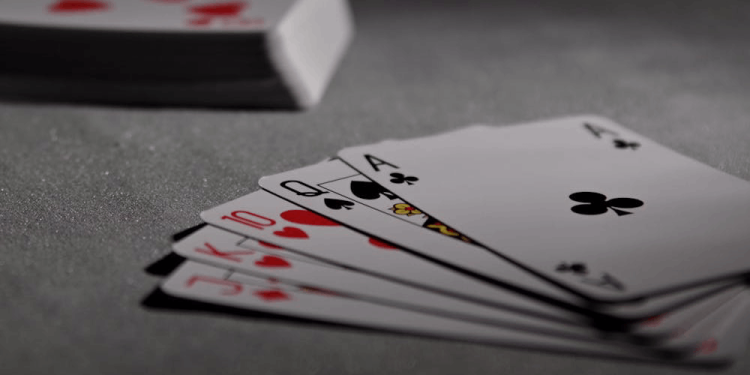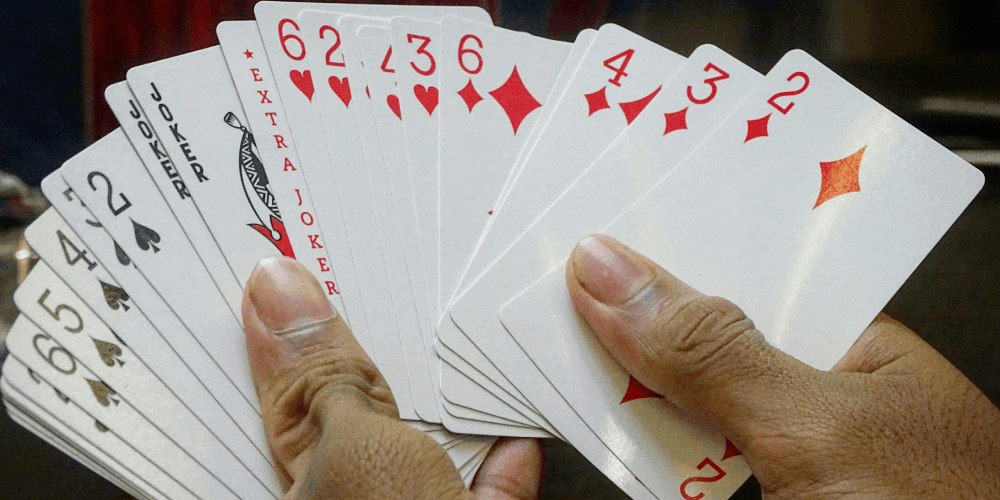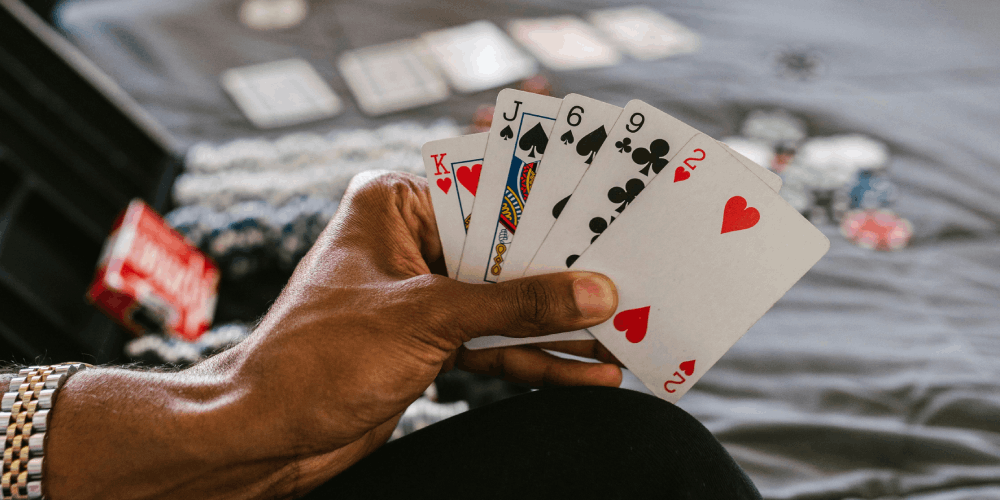The Art Of The Bluff – The Best Way To Learn The Bluff Game
Posted: June 19, 2024
Updated: June 19, 2024
-
How to get better at poker?
-
Poker bluffing types
-
The art of the bluff

Every poker player is looking for the key to win every single game, to master the art of the bluff. This is a hard mix of social interactions and strategy, which involves you being present, analyzing your opponents socially, and understanding the right time to use the right type of bluff, executing it in a social way that is not going to tell too much about your strategy.
Today we are going to talk about the art of the bluff, which is one of the most popular topics among gambling enthusiasts. The whole reason why some people prefer to play poker is due to their skills to be socially unpredictable. Of course, this is the heart of poker, and without bluffing, perhaps you should try to play Blackjack instead.
There are many different card games in a casino, and if you are interested in playing, then all you have to do is browse our list of online poker sites in the US. There are many different ways you can bluff, but some online poker tables do not even require a bluff! As long as there is no social interaction, the bluff is only about your actions and the bets you are making.
What Makes A Bluff? – The Art Of The Bluff
Bluffing is a complex topic when we are talking about poker. According to Reddit, even the best players who understand all rules tend to overthink their bluff, only to be faced with the sad reality that their whole calculation was off due to a misinterpretation of their opponent. A good bluff is to make a simple move, which is beneficial for you. It can be done when your opponent can be caught off-guard, and your bet size should revolve around the pot, without being too obvious.
There are many different types of bluffs, but the essence of it all is to understand how to take advantage of people not tracking every single information at the table. If you wish to improve on your bluffing game, then we recommend you to play low buy-in tables, and learn the common mistakes people make. For that, we recommend Everygame Poker.

The Point of Bluffing In Poker
The art of the bluff in poker starts with the essence of understanding. A bluff is a mix of psychological tricks to win at poker, paired with information and your throughout understanding of the game. Whenever you feel like there is an opportunity for you to lie, you should do it, but only if you socially notice that others are not too immersed in their calculations. It is a hard situation, as you not only have to make perfect assumptions on every other player, but you will also have to socialize, to get some information out of their personality.
Sometimes they are going to act dull, and the moment you bluff, they will coldly state that they see through your move. This is the game of poker, and if you love this, then probably it is the best game you can pick in a casino.
The Different Types – The Art Of The Bluff
According to Tightpoker, in poker, there are several types of bluffs, each with specific strategies. A continuation bet (c-bet) bluff involves raising the pre-flop and betting on the flop regardless of your hand, often succeeding because hitting the flop is rare. On dry boards like A83r, almost any hand can be bluffed, while wet boards like 7s6s9c require hands that interact with the board.
A semi-bluff is made with a weak hand that has the potential to improve, giving two chances to win: the opponent folds, or you make the best hand by the river. Common semi-bluffs include flush or straight draws, or two overcards. A stone-cold bluff is high-risk, made with a hand that has no value and little chance of improvement and used sparingly against weak ranges. Essentially, this is the best way to make sure you understand the bluffs. You not only have to learn to bluff, but to also recognize when others are bluffing.

How Frequently Should You Bluff?
The art of the bluff is also about timing. No, you shouldn’t try to bluff during every single round. You will have to scout for opportunities. Opportunistic bluffs occur in multiway pots when no one shows interest, relying on opponents’ lack of interest rather than hand strength. Bluffs are optimal pre-flop against tight players from a late position, and post-flop on a non-threatening rainbow flop or a low-paired board, as these scenarios increase the likelihood of opponents folding.
The only real way to understand when you should and should not bluff is based on social interactions. When you notice that someone is not as present as they should be, then you should try to make a smooth, nearly unnoticeable bluff for them to be taken by surprise.
How To Improve? – The Art Of The Bluff
It is hard to tell how to improve on your bluff. First, you will have to recognize the issues with your bluff. It can range from overthinking to a lack of game knowledge. According to Masterclass, you should adjust your bluff to your bet sizing. Make people assume that you are bluffing something else. The point is to try to make the bigger hands fold, while the smaller hands are thinking that they can take you out.
To understand how to bluff better in poker, first, you will have to learn how to create a social character at the table. Without that, you are going to be pretty transparent. In conclusion, there are several different ways in which you can improve yourself. Our top recommendation would be to watch some of the classes hosted by poker professionals. That way, you will have a clear direction in all of the aspects. We do not recommend practicing lying to your family and friends.

Try Playing Easy Online Poker
Online poker, unlike its live counterpart, places less emphasis on bluffing due to several factors. First, the inability to read physical cues makes it harder to gauge opponents’ reactions and intentions. Players rely more on statistical analysis, hand history, and betting patterns rather than psychological strategies. Secondly, the fast pace of online play, with multiple tables running simultaneously, reduces the time available to carefully craft and execute bluffs.
Moreover, online platforms often attract more casual players who may not fold as easily to bluffs, rendering them less effective. The art of the bluff is difficult to learn, and you might be the type of person to use the art of persuasion in casinos. If you are interested in playing poker online today, then we recommend you to register at Everygame Poker!












